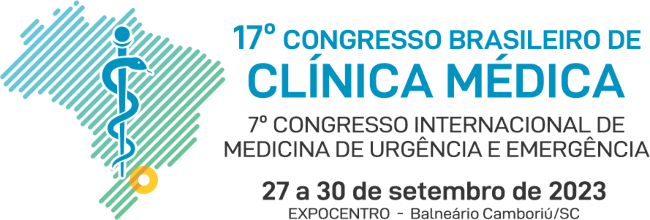Dados do Trabalho
Título
ASSOCIATION BETWEEN HEMATOLOGIC INDICES AND POST-COVID-19 COGNITIVE IMPAIRMENT: PROSPECTIVE COHORT STUDY WITH HOSPITALIZED PATIENTS
Fundamentação teórica/Introdução
Neuropsychiatric complications in COVID-19 survivors remain poorly understood. Among the most common and debilitating symptoms of post-COVID-19 syndrome is cognitive impairment.
Objetivos
The primary objective of this study is to assess the predictive value of hematopoietic, inflammatory, and metabolic biomarkers collected within the initial 48 hours of hospitalization in relation to a patient's risk of developing cognitive impairment two months after being discharged from the hospital.
Delineamento e Métodos
In this prospective cohort study conducted between June and August 2020, we collected laboratory data, including inflammatory biomarkers (CRP, D-dimer, and creatinine) and hematologic indices (RDW - Red Cell Distribution Width, MCV - Mean Corpuscular Volume, NLR - Neutrophil Lymphocyte Ratio, hemoglobin, and neutrophils), from a total of 273 hospitalized patients with COVID-19. Following hospital discharge, 74 patients were followed up for a period of 30 to 45 days. These patients were categorized into two groups: Cognitive Impairment (n = 27) and Non-Cognitive Impairment (n = 47), based on their scores on the Mini-Mental State Examination (MMSE) (total score ≤ 23).
Resultados
A total of 74 patients were categorized and analyzed. In a multivariate logistic regression analysis that was adjusted for comorbidities, the biomarkers were found to be independent risk factors associated with cognitive impairment post-COVID-19. These factors included age over 60 years (odds ratio [OR]: 8.33; 95% confidence interval [CI]: 2.94 – 25; p = 0.007), RDW greater than 13.6% (OR: 3.62; CI: 1.36 – 10; p = 0.011), and hemoglobin levels below 13.4 g/dL (OR: 3.53; CI: 1.33 – 10.1; p = 0.013). No significant differences were observed between the groups for the other tests, namely MCV, NLR, and neutrophil counts.
Conclusões/Considerações Finais
Biological markers obtained during the hospitalization period, such as RDW and hemoglobin levels, could potentially serve as predictors for the development of cognitive impairment occurring two months after the acute phase of COVID-19 illness.
Palavras Chave
COVID-19; Cognitive impairment; Post-COVID-19 syndrome.
Arquivos
Área
Clínica Médica
Categoria
Trabalhos Científicos
Instituições
CENTRO UNIVERSITARIO DE JOÃO PESSOA - UNIPE - Paraíba - Brasil, SECRETARIA MUNICIPAL DE SAÚDE DE JOÃO PESSOA - SMS/JP - Paraíba - Brasil
Autores
MARILIA QUEIROGA DE LIMA CHAVES, FABIA DANYELA ALENCAR CABRAL BERNARDO, INDIRA CECILIA SILVA ALMEIDA, MELQUE EMÍDIO ABRANTES GOMES, DANIELE CARVALHAL ALMEIDA BELTRÃO
